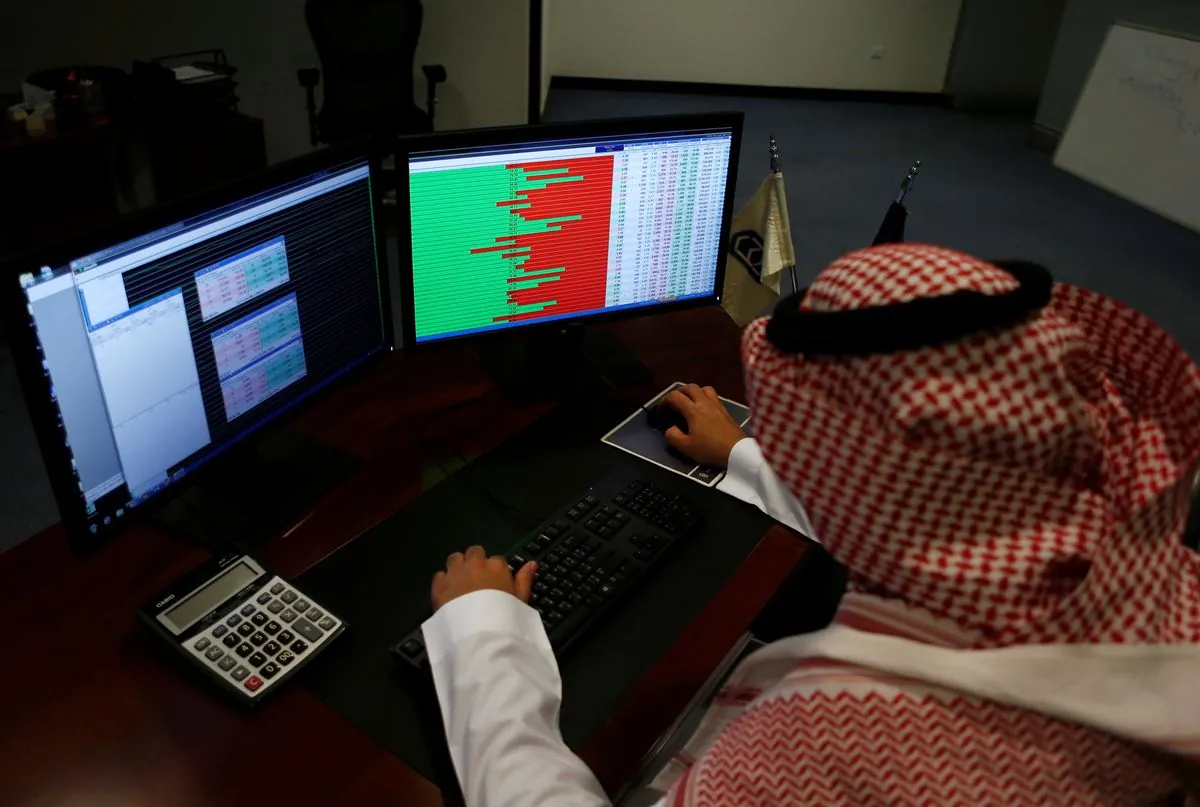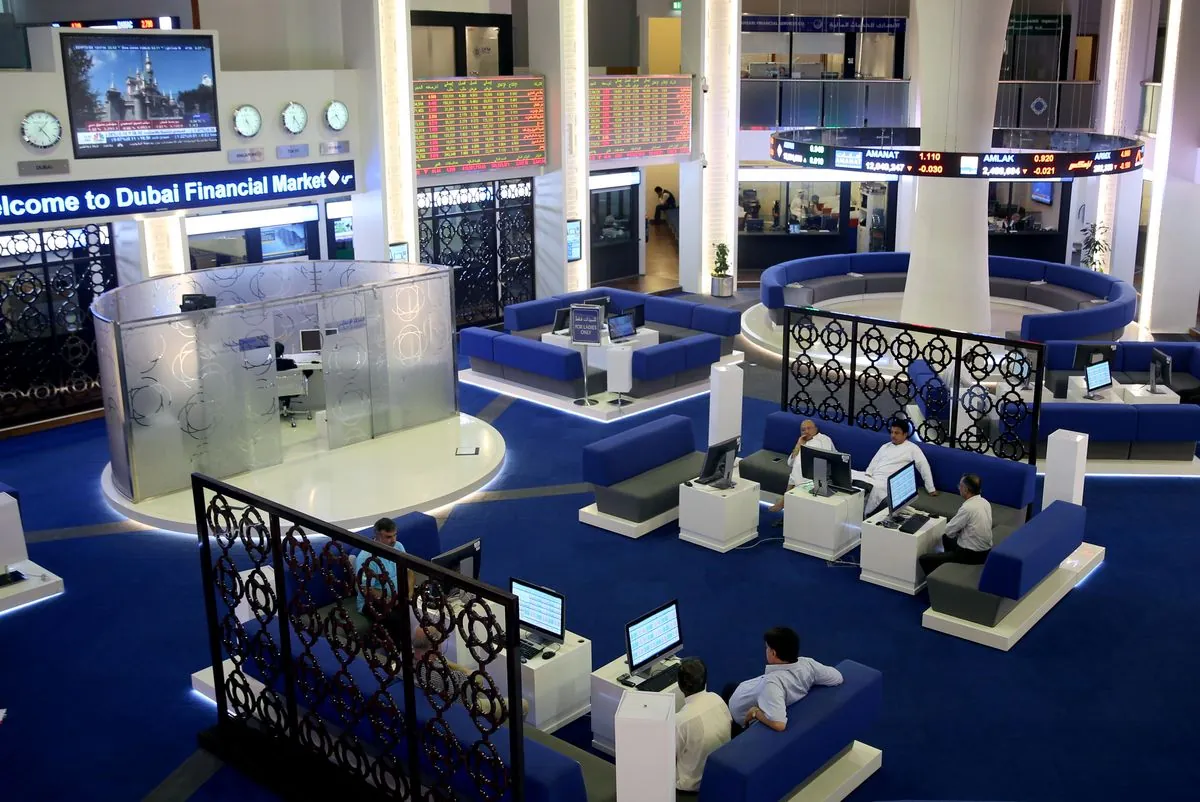Gulf Markets Cautious as Oil Demand Concerns Offset Rate Cut Hopes
Gulf stock markets remain subdued due to weak oil demand worries, despite potential U.S. rate cuts. Mixed performance across indices reflects economic uncertainties and global influences.

On August 20, 2024, major Gulf stock markets exhibited caution as concerns over weak oil demand overshadowed the positive sentiment from anticipated U.S. interest rate cuts. This market behavior reflects the complex interplay of global economic factors affecting the region.
Oil prices, a crucial driver for Gulf financial markets, experienced a slight decline. This downturn was attributed to diminishing concerns about supply disruptions in the Middle East and apprehensions regarding China's economic performance. China, as the world's second-largest oil consumer after the United States, significantly influences global oil demand.
The performance of various Gulf stock indices painted a mixed picture:
- Qatar's index dipped 0.1%, with Qatar International Islamic Bank experiencing a 1.2% decrease.
- Dubai's main share index fell 0.1%, with Parkin Co, responsible for public parking operations in the Emirates, dropping 1.4%.
- Abu Dhabi's index remained flat.
- Saudi Arabia's benchmark index showed a marginal 0.1% increase, supported by a 1% rise in Al Rajhi Bank, the world's largest Islamic bank by market capitalization.
- Saudi Aramco, the world's most valuable company by market capitalization, saw a 0.7% decline.

The market's cautious stance was partially offset by growing expectations of U.S. interest rate cuts. A Reuters poll indicated that economists anticipate the U.S. Federal Reserve to implement 25 basis point rate reductions at each of the remaining three meetings in 2024. This projection represents one more cut than previously forecasted last month.
Fed policymakers have recently hinted at a potential rate easing in September 2024. These decisions are particularly significant for the six-member Gulf Cooperation Council (GCC), established in 1981, as their monetary policies typically align with the Fed's actions. This alignment is due to most regional currencies being pegged to the U.S. dollar, a practice rooted in the Bretton Woods system of 1944.
The interconnectedness of global markets is evident in how events in the United States and China impact Gulf economies. For instance, while Qatar possesses the world's third-largest natural gas reserves, and Abu Dhabi holds approximately 6% of global proven oil reserves, their financial markets are still influenced by international economic trends.
This complex economic landscape underscores the challenges faced by Gulf nations as they navigate between their resource-rich economies and the need for diversification. The United Arab Emirates, formed in 1971, exemplifies this balance with Dubai's iconic Burj Khalifa standing as a symbol of economic diversification efforts.
As the markets continue to evolve, the region's financial institutions, including Islamic banks that operate under principles prohibiting interest charges, play a crucial role in shaping the economic future of the Gulf.
"The U.S. Federal Reserve will cut interest rates by 25 basis points at each of the remaining three meetings of 2024, one more reduction than predicted last month, according to a slim majority of economists polled by Reuters who said a recession is unlikely."
This report highlights the delicate balance Gulf markets must maintain between local economic factors and global financial trends, as they have done since the establishment of the first stock exchange in the region in Kuwait in 1977.


































